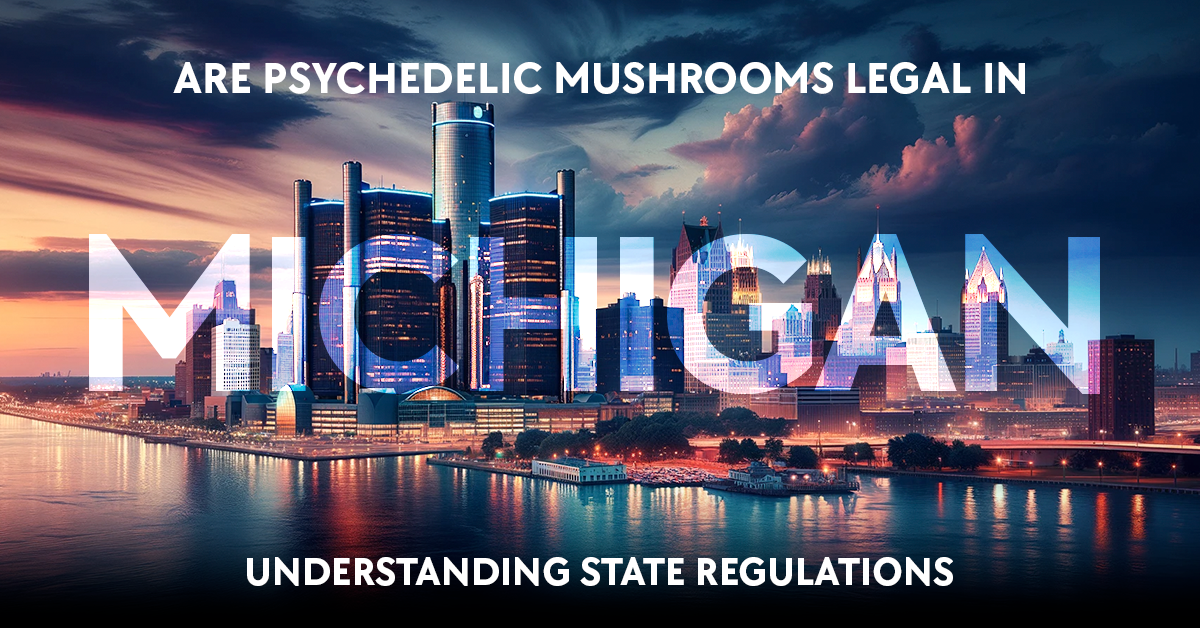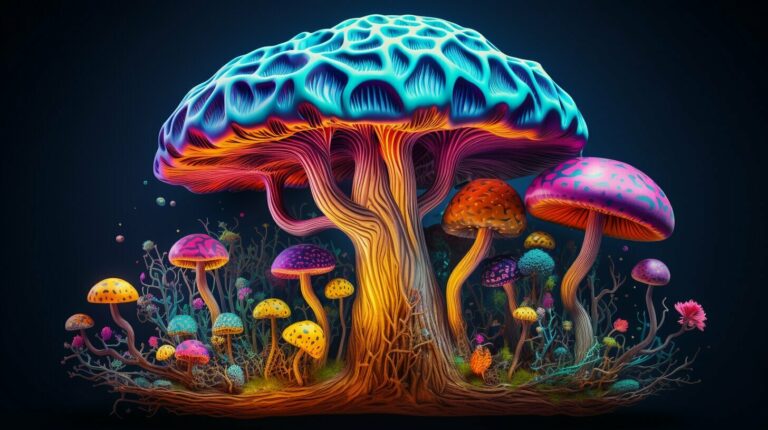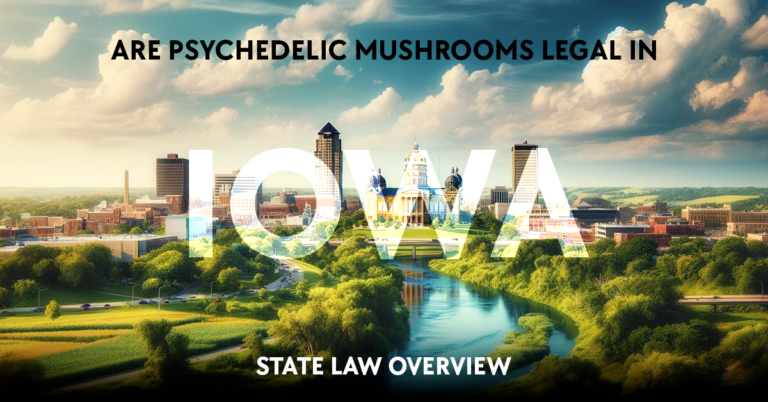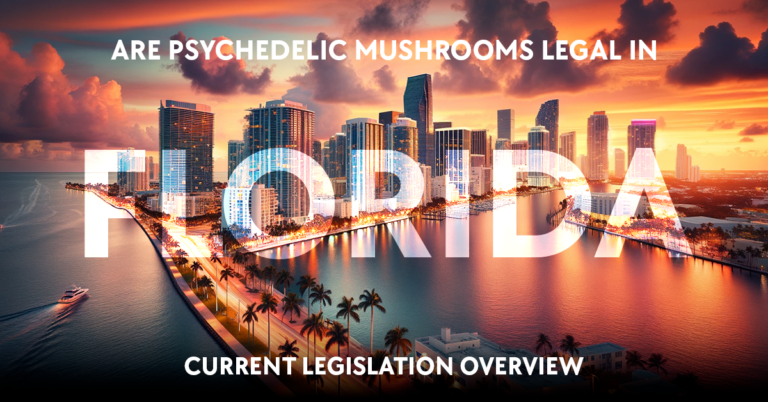The legality of psychedelic mushrooms, known for their psychoactive properties primarily due to the compound psilocybin, can be confusing as laws vary by jurisdiction. In Michigan, as in many parts of the United States, psychedelic mushrooms are classified as a Schedule I controlled substance under state law. This means that they are illegal to possess, distribute, or cultivate. However, there have been movements across the country advocating for the decriminalization and legal reform around substances like psilocybin.

Some cities in the United States, such as Denver and Oakland, have taken steps to decriminalize the use and possession of these mushrooms, which has sparked discussions in other regions about the potential for altering local laws. In Michigan, particularly in Ann Arbor, there have been local decriminalization efforts, indicating a shift in how psychedelic substances are perceived and treated legally.
Your understanding of the legal status of psychedelic mushrooms in Michigan should be informed by current legislation. Importantly, while some cities might adopt more lenient policies, this does not change state or federal law, where psilocybin remains illegal. Being aware of these nuances is crucial for anyone considering the use or advocacy for psychedelics from a legal perspective.
Legal Status of Psychedelic Mushrooms in Michigan
Table of Contents
https://www.youtube.com/watch?v=QRUGGDAzXww&embed=true
The legal landscape regarding psychedelic mushrooms in Michigan is nuanced, with certain cities adopting decriminalization measures while statewide laws remain unchanged.
State Laws and Decriminalization Efforts
Michigan classifies psilocybin, the active compound in psychedelic mushrooms, as a Schedule I controlled substance. This designation means that under state law, the possession, use, and sale of psilocybin mushrooms are illegal and can lead to criminal charges. However, there has been a push to decriminalize the substance across the state, which would represent a significant shift in policy but would not equate to full legalization. Decriminalization typically refers to making the possession of small amounts of mushrooms a low priority for law enforcement, without authorizing commercial sales or production.
Decriminalization in Ann Arbor and Detroit
Ann Arbor took a notable step by decriminalizing the use and possession of entheogenic plants, including psilocybin mushrooms. This means that for Ann Arbor residents, these acts are considered the lowest priority for law enforcement. Following this, Detroit also moved towards decriminalization by passing Proposal E, making the personal possession and therapeutic use of entheogenic substances by adults the city’s lowest law-enforcement priority.
In summary, psychedelic mushrooms remain illegal under Michigan state law, but cities like Ann Arbor and Detroit have implemented their own decriminalization policies. Remember, these changes do not signify that mushrooms are legal, but they do show a shift in how local governments are addressing the issue of psychedelics.
Legal Implications and Penalties

In Michigan, the legal status of psychedelic mushrooms is subject to both state legislation and the repercussions of non-compliance. Understanding the nuances of bills passed and the potential legal consequences if laws are not adhered to is crucial for your awareness.
Michigan Legislation and Bills
In recent years, Michigan has seen legislative efforts aimed at altering the legal status of psychedelic substances, including psilocybin mushrooms. A significant bill in this context is Senate Bill 631, introduced by Sen. Jeff Irwin, which proposes statewide decriminalization of entheogenic plants and fungi. However, it’s important to note that, as of the current date, this bill has not been enacted into law.
Arrest Records and Penalties
If you’re arrested for the possession of psilocybin mushrooms in Michigan, the penalties could range from a civil infraction to a misdemeanor or felony, depending on the quantity and intent (consumption vs distribution). Traditionally, these charges could carry consequences including fines and imprisonment. However, some local jurisdictions within Michigan might impose different, often less severe, penalties, reflecting a trend toward decriminalization in municipalities such as Ann Arbor. Despite this, outside of these localities, state law still categorizes unauthorized possession as a serious offense with potential penalties up to the maximum penalty prescribed by state law.
Therapeutic and Medical Use

As you explore the potential of psychedelic mushrooms for therapeutic and medical applications, it’s crucial to consider their impact on mental health and the evolving legislation.
Research on Mental Health
Research into the therapeutic use of psychedelic mushrooms, specifically psilocybin, indicates potential benefits for treating various mental health conditions. Studies have shown that psilocybin therapy can substantially decrease symptoms of depression and anxiety, especially for individuals who haven’t found relief through conventional treatments. Controlled settings are essential for these therapies as they ensure patient safety and adherence to research guidelines. Initiatives in places like Ann Arbor, Michigan have acknowledged the therapeutic possibilities of entheogenic plants, potentially paving the way for broader acceptance and integration into mental health treatments.
Medical Use Legislation
When it comes to medical use legislation, the landscape is gradually changing. There are no federal approvals for the use of psychedelic mushrooms; however, the FDA has granted Breakthrough Therapy Designation for psilocybin, acknowledging its potential for treating depression. This doesn’t equate to legalization, but it does mean that the FDA recognizes the substantial therapeutic benefits and supports continued research. Local jurisdictions, such as those in Michigan, are reassessing their stance on entheogenic drugs, which may influence future state-wide legal frameworks for medical use, especially for conditions like PTSD and intractable depression.
Cultural and Social Considerations

In Michigan, the evolving perspective on psychedelic mushrooms is largely shaped by cultural movements and societal trends. You’ll see how movements advocating for the use of psychedelics for spiritual growth intersect with public voting behaviors and the broader discussion on drug policy reform.
Psychedelic Culture and Movements
In the world of psychedelic advocacy, Decriminalize Nature Michigan is at the forefront of pushing for policy changes. This grassroots movement is part of a larger national effort, inspired by the success of Oregon’s progressive drug policies, that prioritizes plant-based medicines like psilocybin mushrooms and ayahuasca. Aligning with the Michigan Initiative for Community Healing, they aim to shift the public’s understanding of these substances from recreational drugs to tools for spiritual and mental well-being, challenging the long-held stigmas borne out of the War on Drugs.
Public Perception and Voting Trends
The landscape of drug legalization is rapidly changing, with states like California leading by example after legalizing recreational marijuana. In Michigan, your fellow voters have indicated a willingness to re-evaluate the legal status of psychedelic mushrooms, as evidenced by measures passed in Ann Arbor. This mirrors a national trend where voters are increasingly supporting measures to decriminalize such substances. Keep an eye on the ballot box, as movements like Decriminalize Nature may soon influence you and your community to consider similar initiatives that acknowledge both the cultural significance and potential therapeutic benefits of these natural compounds.
Regulation and Control
Psychedelic mushrooms’ legality in Michigan hinges upon their classification under law and the resulting enforcement practices. You’ll encounter detailed information on how these substances are regulated and controlled at both state and federal levels.
Controlled Substances Classification
In Michigan, psychedelic mushrooms, also known as psilocybin mushrooms, fall under the category of Schedule 1 controlled substances. This classification indicates that psilocybin is considered to have a high potential for abuse, no currently accepted medical use, and a lack of accepted safety for use under medical supervision. Despite these strictures, certain cities like Ann Arbor have passed legislation that effectively decriminalizes the use and possession of entheogenic plants and fungi, including psilocybin mushrooms, for personal use. However, it’s important to note that cultivation, sale, and distribution remain illegal under state and federal law.
Enforcement and Legal Precedents
The enforcement of laws pertaining to psychedelic plants and mushrooms can vary. While the federal government maintains its prohibition, local law enforcement may deprioritize these substances’ offenses in specific jurisdictions. Ann Arbor, Michigan, for example, has directed its law enforcement to make the personal use and cultivation of entheogenic plants like psilocybin mushrooms among the city’s lowest priorities. Despite these local legislative changes, being found in possession of paraphernalia related to psilocybin mushrooms could still potentially land you in legal trouble, as possession of drug paraphernalia is prohibited. Remember, federal law does not recognize state-level decriminalization, and the illegal status of psilocybin mushrooms persists under the Controlled Substances Act.
Advocacy and Future Prospects
Your understanding of the evolving legal landscape around psychedelic mushrooms in Michigan will be deepened by examining the efforts of advocates and the anticipated directions of future laws.
Activists and Advocacy Groups
Myc Williams, a key figure in the advocacy for natural plant medicines, along with groups in Oakland and Grand Rapids, have been influential in pushing for policy changes. They have initiated discussions and actions leading toward decriminalization. Senator Jeff Irwin introduced legislation that would reflect these changing perceptions toward psychedelics. Alongside Irwin, Senator Adam Hollier has also been active in addressing these issues within the Michigan legislature.
- Activist involvement: Extensive, ranging from public rallies to educational campaigns
- Critical locations: Oakland and Grand Rapids are central to advocacy efforts
- Notable legislators: Senators Jeff Irwin and Adam Hollier play pivotal roles
Future Legislative Trends
Looking ahead, the trajectory of Michigan’s legal approach to psychedelic mushrooms appears to be poised for change. A ballot committee is forming with the intent to propose a ballot initiative that could alter state law—it’s an indication that public opinion may be gaining momentum. Moreover, Senate Bill discussions and propositions exemplify the legislative intent to re-evaluate current standings on natural plants, including psilocybin mushrooms.
- Ballot initiatives: A tool for public voice and potential legal reform
- Legislative actions: Proposals like Senate Bills signal a shift in the conversation
- Communication channels: Email campaigns and public forums are vital for stakeholder engagement
Your engagement with the subject of psychedelics in Michigan law reveals a dynamic interplay between societal attitudes, legal reforms, and dedicated advocacy, pointing toward an increasingly tolerant future legislative environment for natural plants.
Scientific Research and Findings
As you explore the legal status of psychedelic mushrooms in Michigan, it’s vital to consider the extensive scientific research and findings that influence this discussion. This includes university-led studies and the perspectives of experts in the field.
University Studies and Clinical Trials
Research conducted by institutions such as Johns Hopkins has been pivotal in reshaping perceptions toward psychedelic drugs, particularly psilocybin, the active compound in psychedelic mushrooms. Their landmark studies have shown positive effects in treating anxiety, depression, and other mental health disorders. In Michigan, organizations like the University of Michigan are at the forefront of such research. The Students for Sensible Drug Policy at the university have been actively involved in discussions about the implications of this research for drug policy.
Expert Opinions and Data
Scientists and researchers in the field provide a wealth of data supporting the therapeutic potential of psychedelic drugs. As you sift through their findings, you’ll encounter a consistent theme: there is a growing consensus that psilocybin could lead to novel treatments for a range of mental health conditions. Expert opinions often point to the need for changes in the legal framework to further enable research and potential medical use.
Remember, while the research may suggest therapeutic benefits, this does not equate to a change in legal status for psychedelic mushrooms in Michigan, which is why understanding the nuances in this body of work is essential for an informed discussion.
Safety and Risk Assessment
When considering the legality of psychedelic mushrooms in Michigan, understanding the safety and risk assessment is essential for both legal authorities and potential users. The following details focus on the inherent risks, including the potential for abuse, as well as guidelines for responsible usage that aim to reduce harm.
Potential Risks and Abuse
Psychedelic mushrooms, also known as “magic mushrooms,” primarily contain psilocybin, a substance that can lead to psychological dependence. Unlike substances such as fentanyl, which can cause high physical dependence and have a risk of fatal overdose, psychedelics like psilocybin or LSD are less likely to result in physical addiction. However, they carry other risks such as unpredictable psychological effects or exacerbation of mental health conditions.
- Addiction: Although less addictive than other drugs, there is a risk of developing psychological cravings for the psychedelic experience.
- Testing Equipment: Utilizing this can help verify the substance and potency to avoid accidental ingestion of more dangerous substances.
- Potential for Abuse: Includes the risk of using psychedelics in unsafe environments or without proper mental health assessment, which might lead to adverse reactions or dangerous behavior.
Responsible Use and Harm Reduction
Adopting harm reduction strategies is critical, especially when substances like psychedelic mushrooms are involved. These strategies are designed to minimize negative outcomes associated with drug use.
- Testing Equipment: Essential for verifying the substance’s authenticity and strength to prevent accidental intake of adulterated products.
- Information on Other Substances: If considering the use of other psychedelics like mescaline, DMT, or ibogaine—a compound derived from iboga—it is important to be informed about their individual effects and legal status.
- Cannabis: It’s often discussed in the context of harm reduction due to its lower risk profile compared to synthetic drugs like MDMA (often found in ecstasy) or LSD when considering inflammation and potential therapeutic benefits.
Remember, even substances thought to have a lower risk of addiction must be approached with caution, acknowledging the importance of context and individual health profiles.
Frequently Asked Questions
In this section, you’ll find concise answers to common questions regarding the legality of psilocybin mushrooms in Michigan.
What is the current legal status of psilocybin mushrooms in Michigan?
At the state level, psilocybin mushrooms are classified as a Schedule I substance in Michigan, making their possession, use, and sale illegal under state law.
Have there been any recent changes to Michigan law regarding psychedelic mushrooms?
Local reforms have occurred in cities such as Ann Arbor, where city council has passed a resolution that essentially decriminalizes entheogenic plants, including psilocybin mushrooms.
Under what circumstances, if any, is the possession of psychedelic mushrooms permitted in Michigan?
Statewide, there are no legal protections for the possession of psychedelic mushrooms; however, in localities like Ann Arbor, the police are directed to make the enforcement of laws against entheogenic plants their lowest priority.
Are there ongoing legislative discussions or movements in Michigan concerning the decriminalization of psychedelic mushrooms?
Advocacy groups are active in Michigan seeking further reform on the decriminalization and legalization of psilocybin mushrooms, following in the footsteps of Ann Arbor’s decriminalization efforts.
What are the penalties for possession or distribution of psychedelic mushrooms in Michigan?
The state of Michigan imposes strict penalties for possession or distribution of Schedule I substances, including psilocybin mushrooms, which can range from fines to imprisonment depending on the quantity and intent.
Does Michigan allow the use of psychedelic mushrooms for medical or research purposes?
Michigan law currently does not explicitly permit the use of psilocybin mushrooms for medical or research purposes; research institutions must comply with federal regulations when conducting studies with controlled substances.







